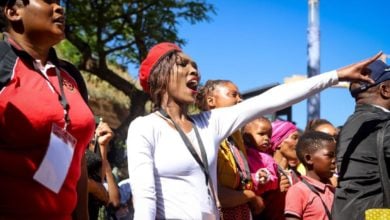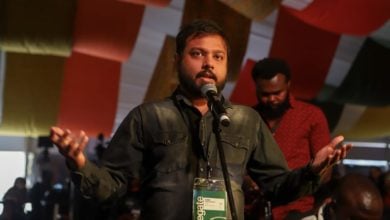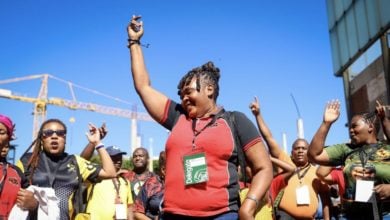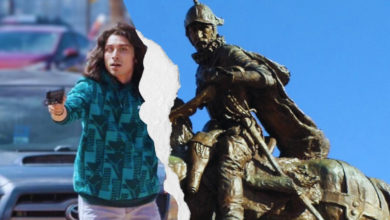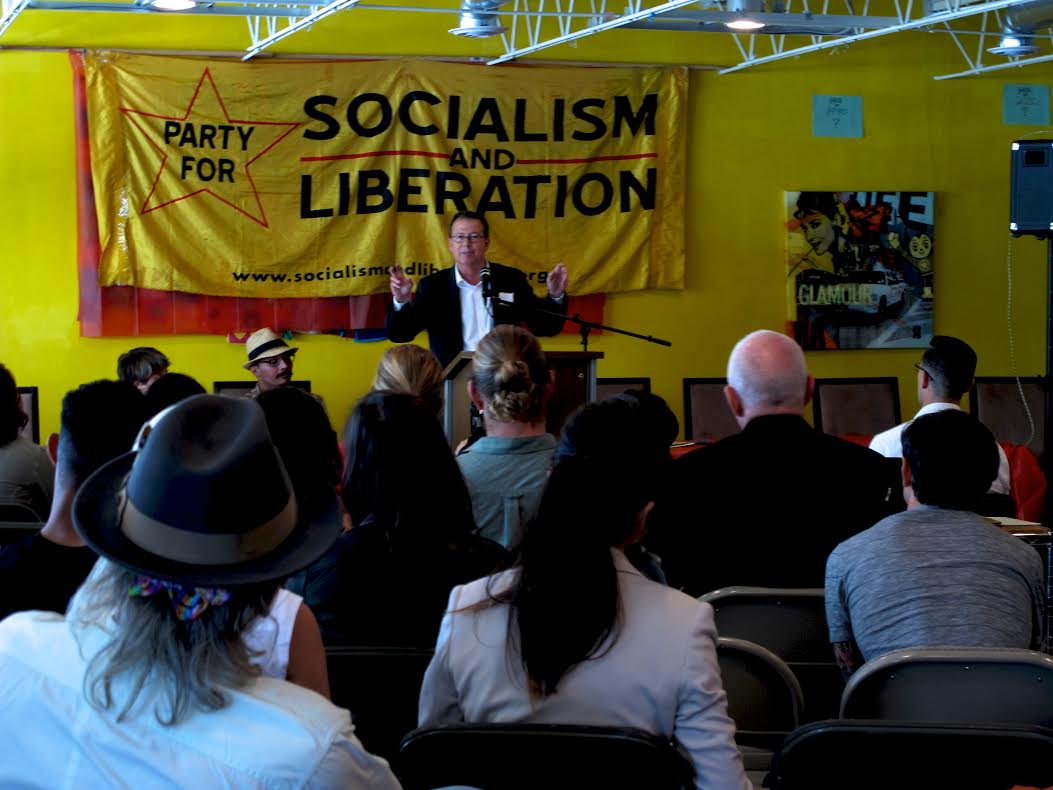
Over one hundred people met throughout Saturday during the inaugural Southwest Socialism Conference in Albuquerque. The event, hosted by the Albuquerque branch of the Party for Socialism and Liberation, focused on the necessity of building a revolutionary socialist movement in New Mexico and beyond.
The first panel, comprised of PSL members and candidates from as far away as Washington, D.C., focused on peoples’ struggles against exploitation and imperialism in the Southwest. Paige Murphy told the crowd about her experience as a Navajo on the reservation. “You have to be nothing but brave when you are growing up on the reservation where the effects of Native American genocide is still so prevalent,” she explained. Andrew Nance from the Los Angeles branch put Albuquerque’s long and recently explosive struggle against severe police brutality and repression into national and historical perspective.
In the keynote plenary, Brian Becker gave a talk titled, “Building a Revolutionary Movement in the United States: Perspectives, Strategies and Tactics.”
In 1979 or 1980, he said, “You would look at the world in a completely different way . . . Revolutions were happening all over the world.” Becker contrasted the prospects for a revolution in the late seventies with the possibility of constructing a socialist society today in the United States and worldwide. Participants in the diverse crowd met the talk with thoughtful questions and a deep, extensive discussion. The conclusion? Absolutely. Absolutely a socialist society is possible and indeed necessary.
After a refreshing lunch period during which participants continued the morning’s discourse, conference goers engaged in one of three workshops:
-Putting an end to sexism and anti-LGBTQ bigotry;
– Busting the Myths about Socialism;
– Native resistance lives!
Each included in-depth socialist analysis of its subject with plenty of time for a lively exchange of ideas and sometimes intense debate.
The “Resisting the imperialist war machine” panel and dialogue provided a wide perspective on U.S. military domination across the globe then brought it back home to New Mexico. Bob Anderson of Stop the War Machine, in a presentation on the militarization of New Mexico and history of nuclear weaponry, said that money from the Pentagon “[has] corrupted the whole political structure of the state.”
After a long day of stimulating conversation and debate, the final plenary addressed the question, “Next Steps in the Socialist Movement: Where Do We Go From Here?” Eugene Puryear, calling in from Washington, D.C., where he is a city council candidate, talked about how the modern economy connects and unites workers across the globe and the importance of international solidarity. Like audience members, he said, “They have to be cogs in this capitalist machine to survive.”
Ryan Endicott, an Iraq War veteran and member of March Forward, expanded on the sentiment of international working class solidarity. “I was a poor working class youth sent half way across the world to fight poor working class people in Iraq. People just like us.” Celena Trujeque of Albuquerque added, “There are no borders in the workers’ struggle.”
Exemplifying the depth of issues that draw people into the socialist movement, Mayan Trujeque spoke of her tribulations as an immigrant. “My dad spent three months in jail for wanting a better life for his children.”
When she came to the U.S. as a child, she found “a society that turned young people against each other. I knew there was something wrong with the system. I wanted to change it.”
Preston Wood closed out the conference. The veteran activist of the 1960s onward described his choice to dedicate his life to revolutionary politics. Then, he called the assembly to action by encouraging everyone to decide themselves. If you choose revolution, he said, “You get to play a role in changing history.”

